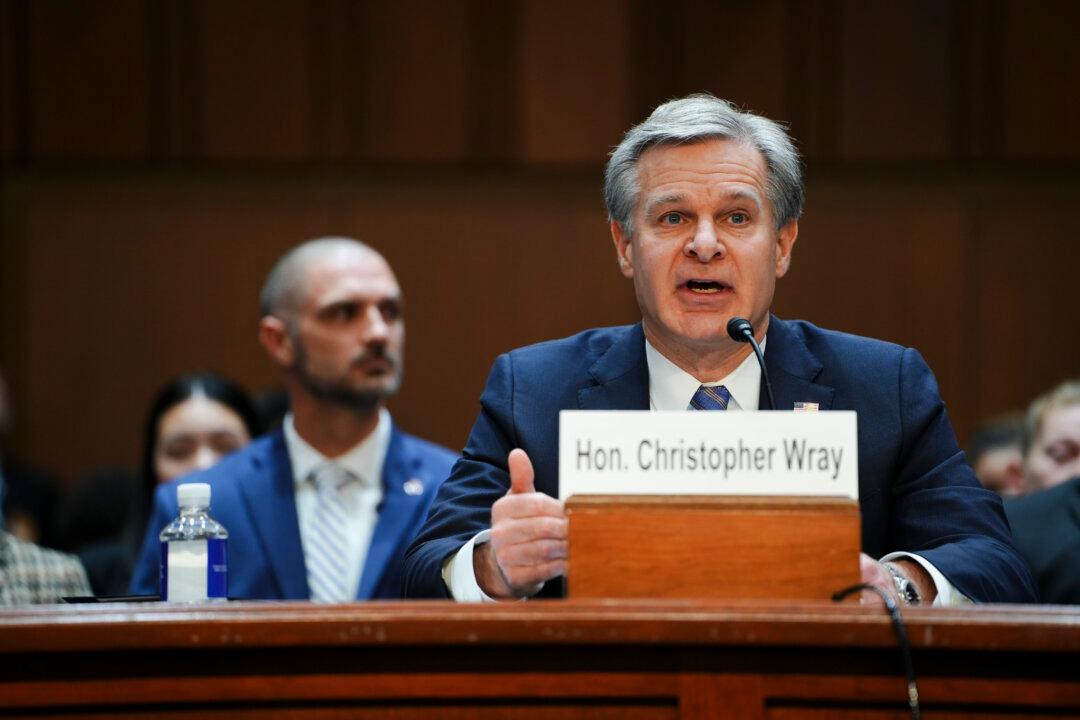Christopher Wray, director of the Federal Bureau of Investigation (FBI), called on lawmakers to extend warrantless surveillance powers that he says supplies the president with much of the intelligence he receives daily.
The Senate Judiciary Committee heard Mr. Wray’s arguments and questioned him about how the statute was used and whether it violates Americans’ constitutionally protected rights.





